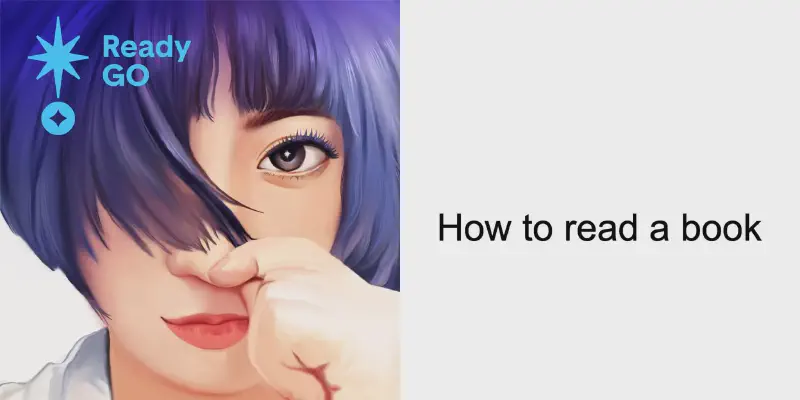The story of cover: a Chinese podcast called “纵横四海”, which also introduced the book
How to Read a Bookby Mortimer J. Adler. This post is following the content frame of the podcast.
This post is more about the process/instructions of reading a book that I should follow afterward, rather than the summary of the book, so the post itself might not fully align with the original content.
The purposes of Reading
I want to form a reading habit in such a multi-media era. I realized the importance of concentration, and my concentration is ripped by distractive short videos, short articles. Limited by the duration (or they are on purpose), the content creator cannot explain their ideas and what leads them to the conclusion, so they just simply fill what they thought into your mind instead of true thinking. I don’t want to be in such a trap, and reading should be the solution. Generally, there are four purposes of reading.
Entertainment
There are so many entertainment choices, like gaming, Youtube, so I think reading as an entertainment might be the hardest among these 4 in terms of motivation. The biggest benefit of reading as entertainment is that you are unlikely to feel guilty (like finishing reading a book can give me some sense of achievement).
Information
Considering the publish date of the book, I think this part is not very true anymore, but I still listed it here. Of course, books have their advantages: they are more reliable because they are reviewed by editors/peers, compared to online posts/articles from unknown sources. However, books cannot offer up to date information, so the actual problem becomes how to find another concentrated and reliable information source. My solution is RSSHub + Folo, a combination supporting customized RSS feed without annoying recommendation by algorithms.
Understanding
The content of books is organized elaborately by the author and editors, so you can understand domain knowledge in a systematic way. Authors won’t be stingy about sharing their knowledge in their book, especially for those books after multiple reviews. As the most traditional information medium, you can easily find several books covering the same topic, to help you deep dive, which is also called theme reading.
Mental Growth
Not only do books present knowledge, but books also show thinking approaches of the author, which is the most valuable nutrient of books, helping you to think like an expert. You have your own context, combined with expert’s mind, and you can deliver your own solution to your life problem/subject. Without theoretical support, people tend to live in imagination, for example, in intimate relationship, you might consider why my boyfriend/girlfriend didn’t contact me for the last couple of days? start worrying about a bad ending for the relationship, which is not necessary or even harmful. Such kind of topics are not suitable for sharing or public discussion, so you do need reading to drag you out, forming a more stable mental core.
So, What to do?
OK, reading is a good habit, so how should I read? I don’t want to make reading become too complicated so that I might give up because of the burden, but I also want to maximize the benefit of reading (I do want to change my life).
Before Reading
The most important thing before reading is to judge whether the book is worth reading.
- What makes me read this book? or What problem do you want to solve by reading this book?
- The name of the book
- The directory of the book (how content is organized)
- The preface of the book (the words that the author wants to tell me before reading)
- The first paragraph of my interested section
This information can tell me if I should continue the reading, and these steps won’t take you too long (about 10 - 30 minutes, I guess?)
During Reading
The books are organized in author’s preference, but I don’t need to follow it. According to the advice given by How to read a book, a qualified reader should restructure the book content based on arguments the author conveyed.
For each argument I meet, I should think about the following questions:
- What is the author’s proposal/advice/opinion? rephrase in my own words
- How did the author prove his/her idea?
- Do I agree with it? if not, what’s my opinion?
- How can I apply the knowledge into my life?
For each topic, I should take notes to answer the 4 questions above.
After Reading
I need to remind myself: don’t expect to internalize 100% of the book and apply it into my life. It’s unfeasible, and that’s also why classic books should be read more than once. Internalization comes from deliberate practice, not reading! So everything I’ve done after reading is to make review easier.
- Output a mind map (organized by argument)
- Quantify the idea and transfer it to action/habit (where the true changes happen)
- Do I need to read more relevant books about the topic?
- Optional: write a blog post
